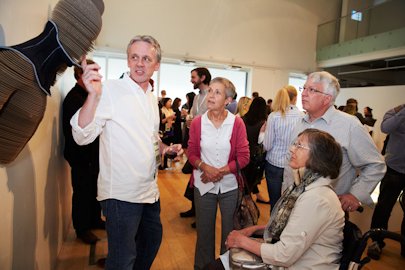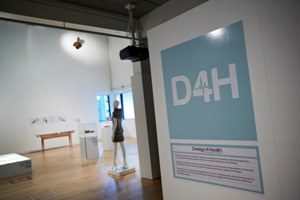To mark the start of World Alzheimer’s Month, the National Institute for Health Research (NIHR) is showcasing some of the cutting-edge clinical research that could bring new hope to dementia patients and their families.
Launched in 2006 by the Department of Health, the National Institute for Health Research invests in all aspects of clinical research across England, so that patients have the opportunity to take part in suitable studies, and evidence can be gathered to keep improving treatments for NHS patients.
Over the past two years, the National Institute for Health Research has put millions of pounds of extra investment into supporting clinical research into dementia, which affects 800,000 people in the UK – a figure that is expected to rise to one million people by 2021.
Now, as part of World Alzheimer’s Month, the National Institute for Health Research has launched www.FocusOnDementia.nihr.ac.uk Aimed at the general public, the online showcase highlights some of the pioneering work supported by the NIHR, which could lead to better treatments for dementia sufferers, and improvements in the quality of life for those with the condition.
For example, the showcase reveals how, with support from the NIHR, researchers in Cambridge are investigating new gene therapy for Parkinson’s disease, to help patients to gain better control over the slow, stiff movement that is a feature of the disease.
The showcase also features the work of researchers in London, who are using NIHR investment to investigate how tele-care and other home support can help dementia sufferers to stay independent and live in their own homes for longer.
Visitors to the showcase site can also read how the NIHR is also supporting research into a “magic bullet”, to help “repair” the brain, and prevent people with Parkinson’s disease developing dementia.
Speaking about the launch of the online showcase, Dr Jonathan Sheffield from the NIHR said:
“The number of dementia and neurodegenerative disease studies we have delivered in the NHS has increased by 40 per cent over the last two years, and this is a growing area of clinical research. So, with World Alzheimer’s Month about to start, we wanted to take this opportunity to give people an insight into the trailblazing work that is going on behind the scenes to tackle this major problem for our society.”
The National Institute for Health Research’s showcase, www.FocusOnDementia.nihr.ac.uk , includes case studies and interviews with leading researchers, patient views on living with dementia, and advice on finding out about current clinical trials.
For further press information, or to arrange interviews, please contact:
Leicia Feare, Leicia.feare@nihr.ac.uk, 0113 343 0321
Tracy Gregg, Tracy.gregg@nihr.ac.uk, 0113 343 6570
Notes to editors: About the NIHR
The National Institute for Health Research (NIHR) is funded by the Department of Health to improve the health and wealth of the nation through research.
Since its establishment in April 2006, the NIHR has transformed research in the NHS. It has:
- Increased the volume of applied health research for the benefit of patients and the public
- driven faster translation of basic science discoveries into tangible benefits for patients and the economy
- developed and supported the people who conduct and contribute to applied health research.
The NIHR plays a key role in the Government’s strategy for economic growth, attracting investment by the life-sciences industries through its world-class infrastructure for health research.
Together, the NIHR people, programmes, centres of excellence and systems represent the most integrated health research system in the world.
For further information, visit the NIHR website www.nihr.ac.uk
Facts about dementia
Source: www.alzheimers.org.uk
- Dementia describes different brain disorders that trigger a loss of brain function. These conditions are all usually progressive and eventually severe
- Alzheimer’s disease is the most common type of dementia, affecting 62 per cent of those diagnosed
- Symptoms of dementia include memory loss, confusion and problems with speech and understanding. Dementia is a terminal condition
- There are 800,000 people with dementia in the UK with numbers set to rise to over 1 million by 2021. This will soar to 1.7 million by 2050
- One in three people over 65 will die with dementia
- Dementia costs the UK over £23 billion a year, and this figure will rise to £27 billion per annum by 2018
- There is no cure for Alzheimer’s disease or any other type of dementia. Delaying the onset of dementia by five years would halve the number of deaths from the condition, saving 30,000 lives a year.




